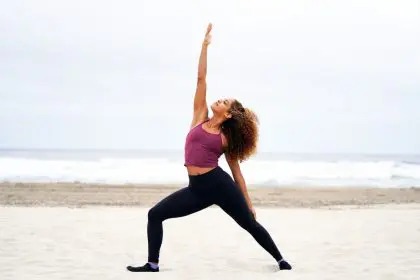Ancient Chinese practice emerges as a groundbreaking solution for cognitive wellness

The intersection of ancient wisdom and modern neuroscience has revealed remarkable insights into brain health enhancement through tai chi practice. This centuries-old martial art is proving to be a powerful tool in the battle against cognitive decline, offering hope to millions of aging adults worldwide.
The science behind tai chi’s cognitive benefits
Recent scientific investigations have unveiled the profound impact of tai chi on brain function and cognitive preservation. Studies from leading medical journals have documented improvements in memory, cognitive function, and overall brain health among tai chi practitioners. This body of research highlights it as an essential practice for maintaining cognitive wellness in aging populations, revealing a strong connection between mind and body health.
Understanding tai chi’s dual impact
Tai chi is unique in that it merges physical movement with mental concentration, creating a holistic experience that engages the brain. Unlike typical forms of exercise, it demands conscious effort and controlled motions, fostering attention, memory, and spatial awareness. This approach transforms a simple exercise into a comprehensive workout for the mind, stimulating the brain’s regions responsible for cognition, balance, and coordination.
Research-backed evidence
Studies have provided solid evidence of tai chi’s effectiveness in supporting brain health:
Cognitive enhancement study
A trial involving 304 participants who practiced various exercise programs revealed that tai chi outperformed traditional methods in cognitive assessments. After 24 weeks, those who engaged in it showed marked improvements in memory and multitasking. This study underscored the power of tai chi’s choreographed, slow movements to stimulate brain areas tied to executive functioning.
Parkinson’s disease research
A longitudinal study spanning 3.5 years focused on the impact of tai chi on those diagnosed with Parkinson’s disease. The findings showed that regular practice slowed the progression of motor symptoms and reduced the need for medication. Beyond motor benefits, participants reported enhancements in non-motor symptoms like depression and anxiety, leading to a better overall quality of life.
The mechanics of neural stimulation
Tai chi’s cognitive benefits can be traced to its intricate, mindful movements that stimulate multiple brain regions simultaneously. By incorporating slow, deliberate motions, practitioners engage in brain exercises that promote neural plasticity—the brain’s ability to reorganize and adapt as a result of experience. This stimulation strengthens neural connections, bolsters cognitive resilience, and supports healthy aging by enhancing the brain’s ability to respond to new challenges.
Accessibility and implementation
Tai chi’s versatility makes it suitable for people of different fitness levels and physical conditions. From older adults to those with limited mobility, tai chi offers a low-impact way to exercise while maintaining cognitive health. This approach can be adapted to suit individual needs and preferences.
Practice variations
Tai chi comes in multiple styles, such as Yang, Chen, and Sun, which accommodate various physical abilities and preferences. These styles can be modified for different fitness levels, ensuring that practitioners, regardless of age or condition, can reap its cognitive benefits.
Community integration
Tai chi is more accessible than ever, with classes available at community centers and online platforms. The virtual nature of these offerings has expanded the reach of tai chi, making it easier for people to participate from the comfort of their homes. Community-based practices can also foster social engagement, which has its own positive effects on brain health.
Long-term health implications
Regular tai chi practice provides long-term cognitive and physical benefits, contributing to overall wellness and improved quality of life. The cumulative nature of these benefits helps to slow cognitive decline and build resilience against age-related brain diseases.
Cognitive preservation
Tai chi’s influence on the brain is multifaceted. It enhances memory function, increases mental clarity, and promotes better information processing. Participants report improved spatial awareness and the ability to maintain focus over longer periods, reducing the risk of cognitive impairment.
Physical benefits
Beyond cognitive enhancements, it supports physical health through improved balance, coordination, and posture. This has significant implications for fall prevention—an essential consideration for older adults. With regular practice, the risk of falls is reduced, promoting independence and overall well-being.
Professional guidance and safety
While tai chi offers substantial benefits, guidance from experienced instructors ensures practitioners engage in the practice safely and effectively.
Getting started
Consultation with a healthcare provider before beginning a new exercise regimen is recommended, especially for those with pre-existing health conditions. Selecting a style that matches individual needs and working with a qualified instructor helps maximize benefits while preventing injury.
Safety considerations
Personal safety during practice involves assessing individual physical limits and adapting movements accordingly. Monitoring progress and making adjustments ensures that practitioners remain on a steady path toward achieving cognitive and physical benefits without overexertion.













